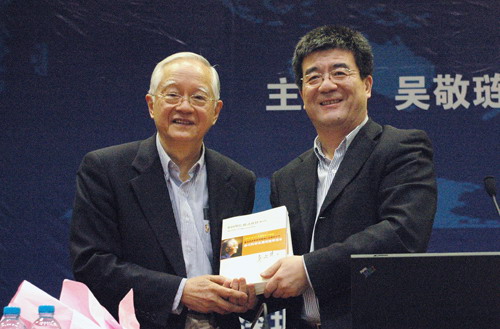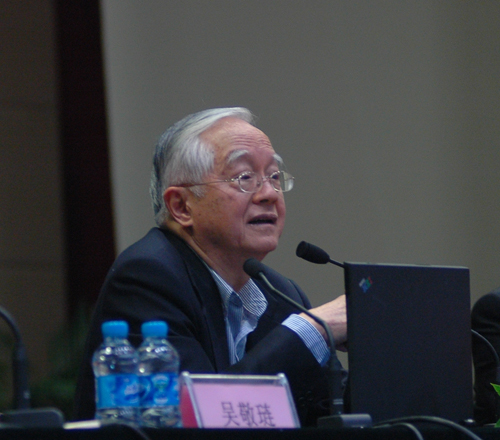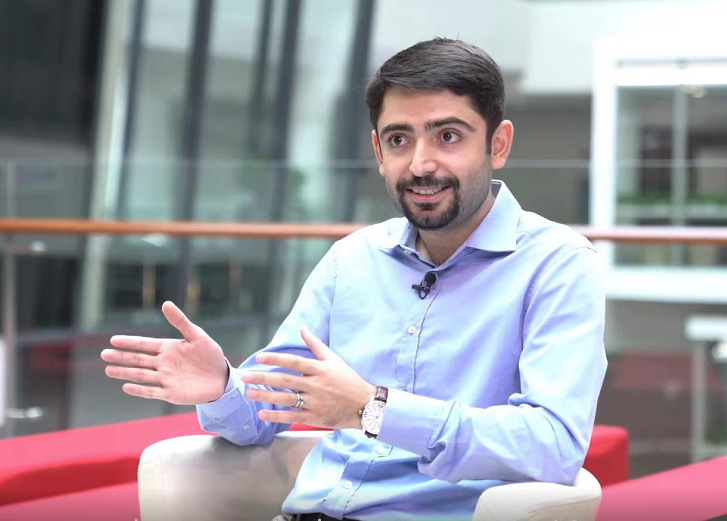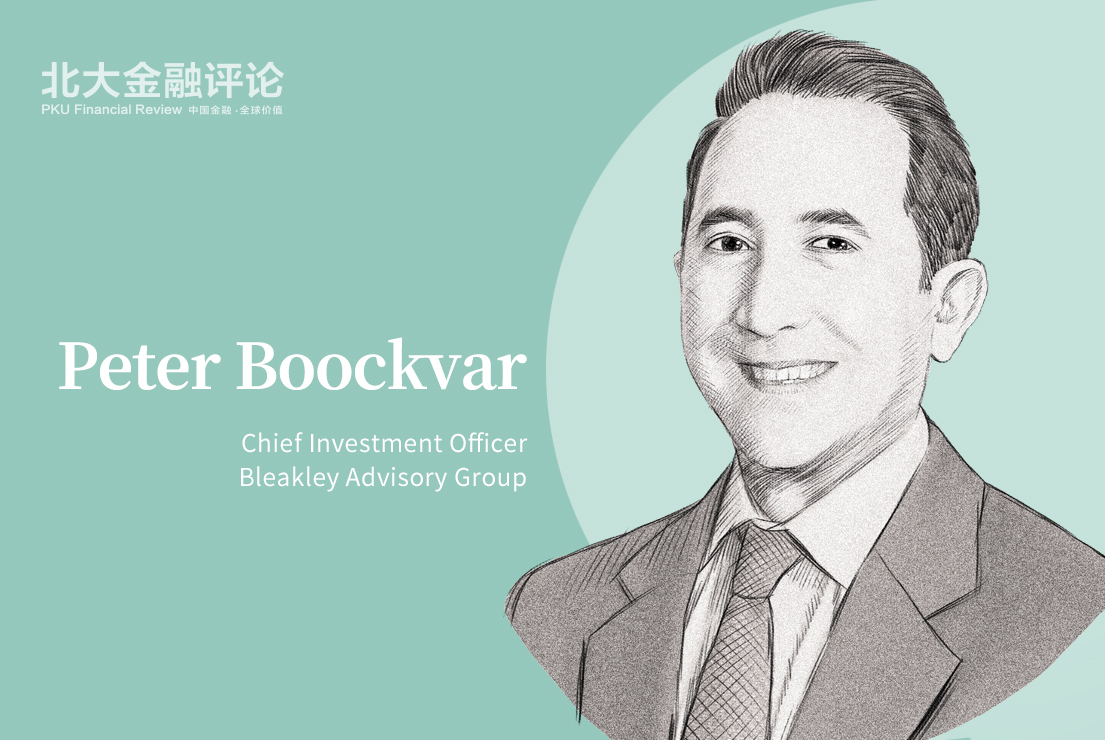At 7:00 pm of December 16, 2008, Professor Jinglian Wu, a renowned economist and the senior researcher of Development Research Center of State Council, delivered a speech on the current financial crisis affecting most countries in the world at Peking University Shenzhen Graduate School. Professor Wen Hai, Vice-Chancellor of Peking University and Dean of Shenzhen Graduate School, presided over the lecture which attracted students and teachers of Peking University Shenzhen Graduate School as well as professionals from industries and media.

The lecture began with some essential facts of international financial system after the breakdown of Bretton Woods System, such as low saving rates and high consumption in U.S., aggressive monetary policy and loose financial supervision in Greenspan times, excessive prosperity in capital markets, liquidity surplus, and asset bubbles.
According to Professor Wu, Chinese economy depends heavily on the growth of exports, especially the exports to U.S., hence forming a complementary relationship with American economy. Now, China has been one of the biggest debtors of U.S. because the export-oriented policy failed to be adjusted in time. Moreover, abundant bubbles have been imported into China because of the taking-over of American financial assets. China has been a vital part of international community due to its fast economic development and vast reservation of foreign capitals. Decreasing international purchasing power leads to less export orders. How is this world-wide financial crisis affecting Chinese economy?

Professor Wu believed that stronger and continuous reform is vital to remove various barriers in system to facilitate the transformation of mode of growth. China has been actively cooperating with other countries to work out solutions to combat this financial crisis spreading over the world. Domestically, the government shall make more favorable policies to help the enterprises survive the hard times.
















